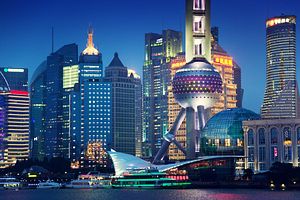Chinese President Xi Jinping just concluded a visit to Indonesia commemorating the 60th anniversary of the historic 1955 Bandung Conference. Clearly, Xi Jinping was the center of attention as he laid out China’s vision for the future of Asian-African cooperation. While China used to be the leader of the third world during the Cold War era, China’s overall capabilities meant that it could not provide an alternative model of development for other developing countries. But things are changing now. Today’s China is marching (slowly) toward superpower status and this means that it is in a much better position to help other developing countries achieve their own national dreams.
How will China do this exactly? There are four things China should make great efforts to promote.
First, China should promote sustainable development in other developing countries, in Asia and beyond. The term sustainable development, of course, is not new at all, but the sad reality is that most developing countries cannot achieve this goal due to a variety of factors, including their heavy reliance on natural resources, lack of capital, and so forth. This is why so many poor countries are still stuck in the low-income trap. One main goal of China’s “One Belt, One Road” initiative is to help those developing countries to significantly improve their domestic infrastructure, which is a necessary step toward ameliorating their path toward development.
A good example of this is China’s recent commitment to invest $46 billion into Pakistan, China’s ironclad friend in South Asia. While most analysts focus on the economic and strategic implications of such deals, one neglected implication of China’s assistance is that China is actually helping Pakistan to complete a ‘nation-building’ process, which is far from finished because of domestic separatism and unrest within Pakistan. In a sense, this is a familiar problem facing many developing countries as they suffer from civil wars and other types of domestic conflicts. Without a stable and peaceful domestic environment, it is simply impossible for these developing countries to focus on their economic development. So, in this area, China can export its own rich experiences in establishing an effective bureaucratic system for other developing countries. In other words, China can make so-called “failed states” work again.
Another thing China should heavily promote is creative growth. We now are living in the era of the informational economy, and this is actually very good news for developing countries. In some senses, the world is truly flat now. This provides a golden opportunity for developing countries to climb out of their resource traps and create new industries that center around knowledge, abetted by the Internet. China itself is trying hard to become a creative economy. In this area, China can share its own successful and unsuccessful experiences with other developing countries. Over the last 20 years, China has successfully developed new tech giants, like Alibaba and Tencent, which are now globally competitive.
Similarly, China should do all it can to promote more reforms of the international financial system. The recent Asian Infrastructure Investment Bank (AIIB) episode is the best example. The simple reality of global finance is that developing countries are receiving too little capital from the developed world. This isn’t a result of the lack of capital, because there is abundant capital around the world. The key issue is that capital owners in the developed world are not willing to risk their investments in most developing countries due to all kinds of political, social, and economic uncertainties. We cannot blame these capital owners, however. After all, capitalists rightly only care about capital returns. Their risk aversion, however, provides a good opportunity for China because as an aspiring rising power, China’s investment decisions should focus on more than just economic returns; they should include political and strategic returns. Huge risk and uncertainty lies ahead for China in this area no doubt, but the potential exists for huge returns as well.
Lastly and perhaps most importantly, China should promote a broader democratization of international relations. As the world gradually moves into a multi-polar one, all countries should promote justice and fairness in international affairs. China can be a global leader in this area too. Of course, China itself should be fair and just to other countries and abide by the rule of law in international affairs. This is the essence of building ‘a new type of international relations,’ going beyond the old model of international politics where ‘winner takes all.’

































